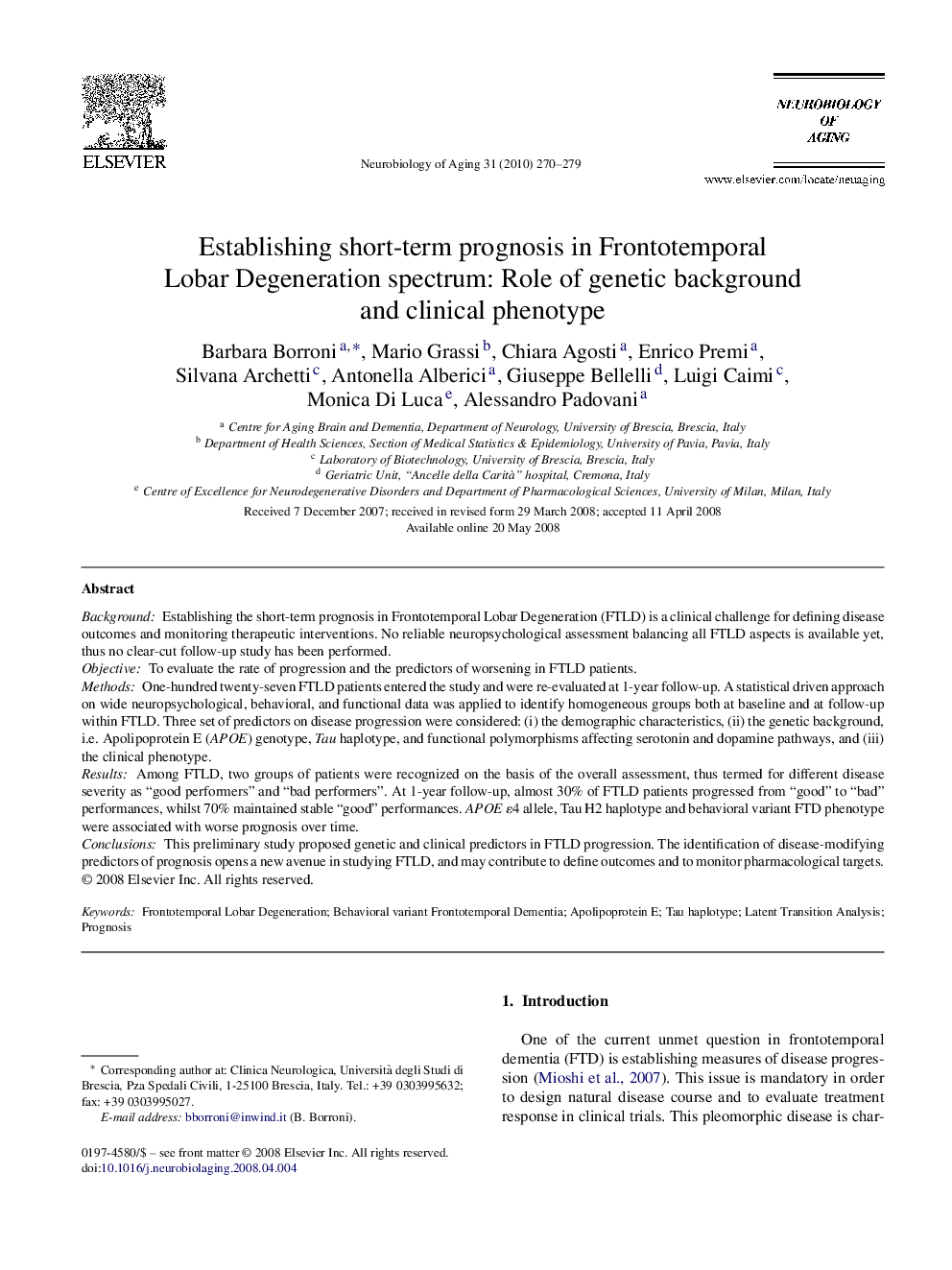| Article ID | Journal | Published Year | Pages | File Type |
|---|---|---|---|---|
| 329411 | Neurobiology of Aging | 2010 | 10 Pages |
BackgroundEstablishing the short-term prognosis in Frontotemporal Lobar Degeneration (FTLD) is a clinical challenge for defining disease outcomes and monitoring therapeutic interventions. No reliable neuropsychological assessment balancing all FTLD aspects is available yet, thus no clear-cut follow-up study has been performed.ObjectiveTo evaluate the rate of progression and the predictors of worsening in FTLD patients.MethodsOne-hundred twenty-seven FTLD patients entered the study and were re-evaluated at 1-year follow-up. A statistical driven approach on wide neuropsychological, behavioral, and functional data was applied to identify homogeneous groups both at baseline and at follow-up within FTLD. Three set of predictors on disease progression were considered: (i) the demographic characteristics, (ii) the genetic background, i.e. Apolipoprotein E (APOE) genotype, Tau haplotype, and functional polymorphisms affecting serotonin and dopamine pathways, and (iii) the clinical phenotype.ResultsAmong FTLD, two groups of patients were recognized on the basis of the overall assessment, thus termed for different disease severity as “good performers” and “bad performers”. At 1-year follow-up, almost 30% of FTLD patients progressed from “good” to “bad” performances, whilst 70% maintained stable “good” performances. APOE ɛ4 allele, Tau H2 haplotype and behavioral variant FTD phenotype were associated with worse prognosis over time.ConclusionsThis preliminary study proposed genetic and clinical predictors in FTLD progression. The identification of disease-modifying predictors of prognosis opens a new avenue in studying FTLD, and may contribute to define outcomes and to monitor pharmacological targets.
